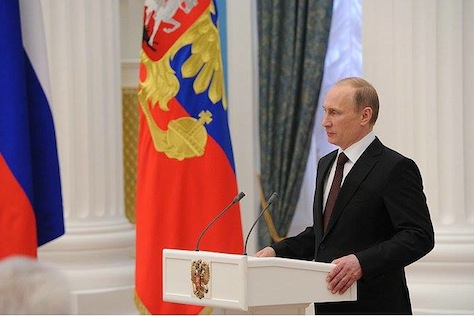It’s been a relatively active spring, politically speaking, in the Balkans, what with Serbian elections in March elevating Aleksandar Vučić to the premiership, Macedonian elections in April that brought a fourth consecutive term for the center-right government, and Slovenian elections next month after the resignation of its first female prime minister Alenka Bratušek.![]()
But on June 8, it was Kosovo’s turn, where the country held elections that, for the first time, featured the participation of the Serbian minority in North Kosovo.
Preliminary results gave the governing center-right Partia Demokratike e Kosovës (PDK, Democratic Party of Kosovo) a narrow lead of around 30.72%, to just 25.72% for the opposition center-right Lidhja Demokratike e Kosovës (LDK, Democratic League of Kosovo), which is led by Isa Mustafa, the mayor of Priština, Kosovo’s capital, between 2007 and 2014. The left-wing nationalist Vetëvendosje (Self-Determination) won just 13.51%, despite its breakthrough performance in last December’s local elections, which its mayoral candidate, Shpend Ahmeti, wrested control of the mayoral office in Priština.
Throughout Kosovo, turnout climbed only to around 41.5%, less than the 47.8% turnout in the last election in 2010. Turnout was even lower in North Kosovo, home to the country’s predominantly Serbian minority population. Nonetheless, the Srpska lista za Kosovo (Serbian List for Kosovo) won 4.51% of the vote nationally, a marked increase in voter share, if not in seats, given that 10 seats in the 120-member Kuvendi i Kosovës (National Assembly) are reserved for the Serbian minority. Another 10 seats are reserved for additional minorities, ranging from Turks to Croats to Egyptians to Bosniaks to Romani.
Vučić himself encouraged Serbs in North Kosovo to vote, and his government commended the increase in turnout, which was nonetheless lower than in 2013 local elections.
The likeliest result is a third consecutive term for the government headed by Hashim Thaçi (pictured above), the leader of the DPK, a former leader of the Kosovo Liberation Army, and Kosovo’s prime minister since 2008. Thaçi currently governs in coalition with a handful of small parties and the National Assembly’s ethnic Serbs. He’ll have to assemble a similar coalition again — or otherwise turn to a ‘grand coalition’ with the LDK and/or Vetëvendosje.
In a narrow sense, the elections themselves were a success, given the growing Serb participation and the relatively smooth voting process, much improved from the widely panned 2010 national vote, which was marred by fraud, and the 2013 local elections, which were marred by violence in North Kosovo. Continue reading Ruling PDK and allies win Kosovo’s parliamentary elections


